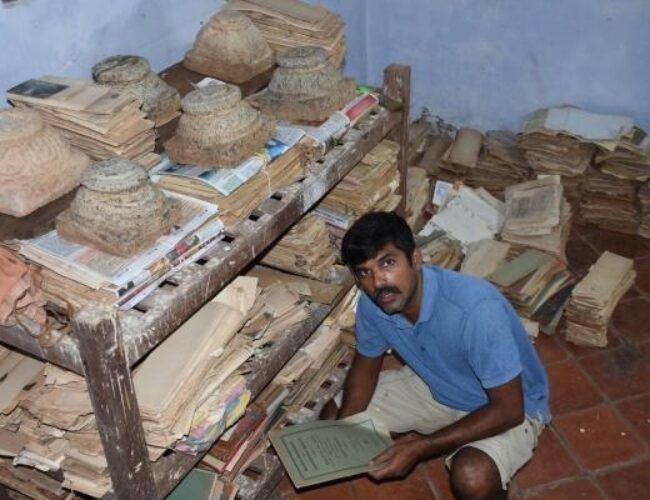Kongu Nadu is one of the earliest cultural areas in ancient Tamil land. The documents held by chieftains in the region are of great interest to historians, anthropologists, sociologists and linguists. The quick societal changes in the region, combined with the tropical climate of South India, puts the documents at great risk.

Starting from the 12th century, Kongu Nadu (South India) was divided in 24 sub‐territories administered by these chieftains from various caste groups. Pattakkarars and Palaiyakkarars (social and political leaders) created archives of documents relating to family genealogies, legal proceedings, land transactions, records authenticating their legacy, etc. The documents shed new light on south Indian history in general and Kongu Nadu history in particular.
The families’ rule ended with the Independence of India in 1947. These royal houses also went through important internal changes, such as nuclearisation of families, division of the ancestral properties, and migration to the nearby cities to establish businesses. These factors led to large-scale neglect of their archival documents as well as rare artefacts and photographs in their palaces. This combined with the climatic conditions of South India are two major factors adding to the fast disappearance of these unique records.
Stemming from three previous projects in the region, this project aimed to locate, identify and obtain permission to digitise documents of different chieftaincies in the region. The team located 18 privately owned archives and trained the owners in basic conservation measures. The project digitised 50,000 images.
